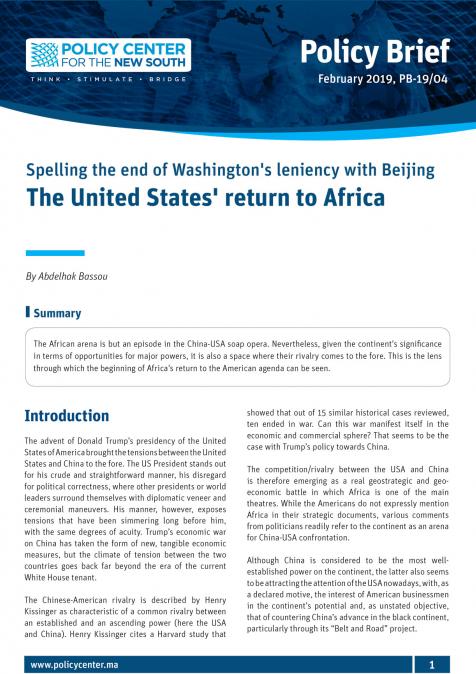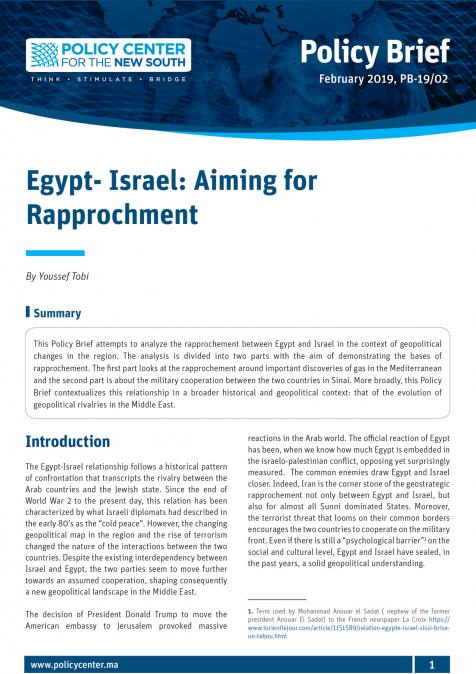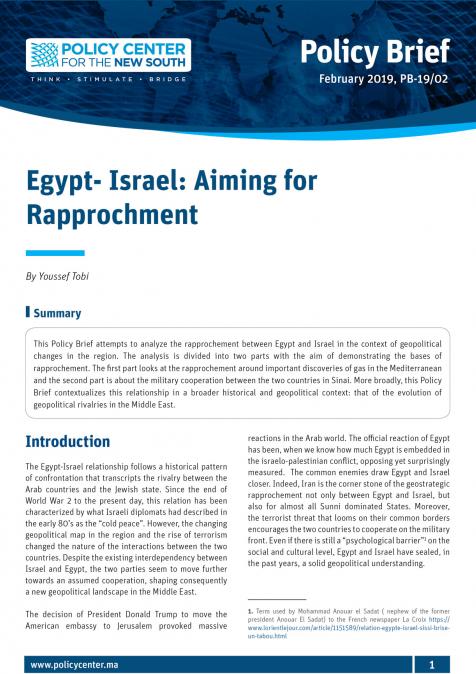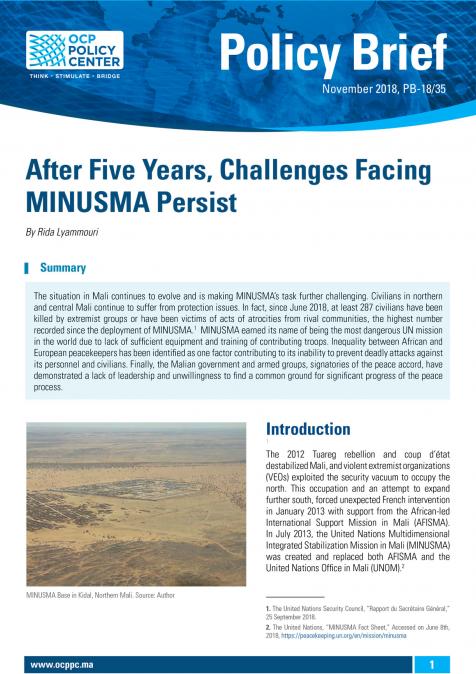Publications /
Opinion
Olaf Scholz had no time to enjoy the beauty of the Canale Grande-one of the most treasured tourist sights on the globe. In July of this year, during his first visit to Venice ever, the 63 years old ambitious German politician was not drawn to the historical wonders or the fine architecture the city offers. In the center of the city's esthetical grandeur, the German Minister of Finance and Vice-Chancellor of Angela Merkel's government practiced what he enjoys most: politics, his passion since high school days. An early leftist who moved towards the more conservative wing of the Social Democratic Party of Germany (SPD), a party led by political luminaries such as Willy Brandt and Helmut Schmidt.
On this balmy summer weekend, Scholz stood for three hours on the edge of the canale fielding questions from journalists about the upcoming federal elections in Germany, instead of enjoying the gondoliers or Vaporetto steering through traffic on the waterway and or even reflecting deeply about the G20 Finance ministers meeting. "It has been a long march through the election campaign details and global politics", noted a Der Spiegel reporter (September 3, 2021) "and he never once wavered; he weathered all criticism and demonstrated how tremendously knowledgeable he is. It was a performance worthy of Merkel."
Three years into the Merkel led coalition (center-right Christian Democratic Union/Christian Social Union (CDU/CSU) and left-leaning SPD, Scholz, a lawyer who specialized in business law, had to deal with catastrophic opinion polls for his party. In December 2020, the approval rating for the SPD was about 11%. Scholz had to convince his SPD that he was the right chancellor candidate to lead the social democrat's unlikely comeback. The same party members had rejected his attempt in 2019 to be elected as the party leader. Instead, the party chose two unknown leftists- a tremendous dent to his ego. Scholz "has really never been popular within his party", stated Deutsche Welle (September 27, 2021). Neither his rejection nor the depressing figures of his party's standing among German voters apparently dampened the Scholz spirit nor optimism; he was "in it for the long haul", the "marathon".
Scholz, reported Sabine Kinkartz in Deutsche Welle (September 13, 2021)," displays unshakeable confidence and has weathered many a storm in his political career." Scholz's experience extends beyond merely having a seat at the cabinet table of the Merkel government," reminded Der Spiegel (September 27, 2021). For seven years, he served as Hamburg's Mayor, a city of 1.8 million people, used to a rather conservative/elegant lifestyle, the Northern German town covered with lakes, well-maintained parks and the river Elbe, which feeds one of Europe's largest container harbor's. Scholz did not decorate cocktail parties through his presence, nor provoke headlines with his private life. Conservative, Discreet, guarded. In 2002 when Scholz was the Labor minister in the ”SPD government of Gerhard Schroeder, he took the reins of the Hamburg chapter of the SPD. Der Spiegel” wrote, "it was divided and riven by trench warfare. He promised leadership, and he delivered. Sometimes with a heavy hand."
The former mayor of Hamburg is married to a regional politician, Britta Erns; they do not have children. From nowhere to 25.7% - Scholz the victor without an absolute majority. The robot, as opponents named him, is ready to rule. When, on September 26, he was facing the TV cameras to react to the impressive election result, Scholz sipped half a glass of beer, his wife applauded, and then he said:" We will now wait for the official result to get to work." Negotiations with the neoliberal Free Democratic Party (FDP, which reached 11.5% of the vote), the Green Party (14.8%) are in process, intense, discreet, and hardly any leaks to the media about the dealings for policies and cabinet seats, influence and profile. Greens and Liberals will most probably join a government coalition, ready to offer concessions for four years of power. The next elections are scheduled for Sunday, October 26, 2025. The conservatives are condemned to opposition, in disarray and uncertain about their future leader or a new, modern approach to their conservative philosophy. Angela Merkel will retire. “Never before”, reported Der Spiegel, "have the conservatives received less than 31% of the vote”.
Indeed, in the previous 19 Federal elections held since world war II, reminded the newsmagazine, “the Union won more than 40% of the vote, and often significantly more- on 13 occasions…. The scenario which unfolded on Sunday night (election day) reveals the accurate dimensions of this election: Germany is entering uncharted territory. What used to be a two or three-party system has morphed into a six-or even seven-party system. After a long period of infirmity, the era of the big tent political parties is drawing to a close. A coalition government with at least three partners will become the new normal. "Three of the four national governments Angela Merkel led were a partnership with the Social Democrats, the so-called Grosse Koalition, which, for now, is history.
"You Angela, me Merkel."
The rude result for the conservatives was amplified by the news that Merkel's parliamentarian seat, which she held, before retiring, for 31 years, was won by an opponent, an SPD candidate. Scholz and Scholz, once again Scholz dominated TV debates, his photo scattered all over the land, spreading the message to the people, "Respekt Fuer Dich" (respect for you). Somehow the pragmatist managed to revive his almost lifeless, left-wing led Social Democratic party within just a few months without charisma. No Obama like vibrations and enthusiasm. "It is the victory of a career politician", stated Der Spiegel (September 27, 2021), a professional in the stormy waters of Berlin. That, too, came as a surprise, after all that talk for a different style of politics. But the case of Donald Trump showed that a different kind of politics isn't necessarily better. Furthermore, the coronavirus pandemic made it clear to the voters that catastrophe can strike at any moment.
Experience and reliability in the Chancellery is a comfort, which provided a boost in the Scholz campaign. As finance minister, "Scholz has been in a good place to shine in the Coronavirus crisis", confirms the Deutsche Welle (September 15, 2021): as finance minister, he is in charge of distributing billions of euros in emergency funds to help the economy and the citizens weather the storm. In a crisis, pragmatism trumps over charisma, which has played into the 63 years old hands." Scholz positioned himself as a pragmatist and a safe pair of hands", observed CNN analyst Ivana Kottasova (September 27, 2021)."His political style is not dissimilar to that of Merkel-the two are alike in many ways, despite hailing from different parties." Just imagine another country, France for example, Italy, The US! Would any of their defeated leaders invite the opponent to accompany him (or her) to the next G20 meeting in Rome, late October? It just happened: Angela Merkel offered her Finance minister to join her for the G20 in Rome, introducing Scholz to is future colleagues, including Joe Biden, who chatted with Merkel and Scholz for 15 minutes. Mind you: the negotiations about the coalition have not yet been concluded, and Scholz has not been approved by the German parliament yet. He is a chancellor in waiting.
For Scholz, it seemed inevitable the people wanted someone like Merkel. In other words, advanced Der Spiegel, himself. He has always been convinced of that – with iron confidence that seemed almost quixotic in the face of depressing poll numbers. "In other words: succeeding Angela Merkel by emulating her, as the Hamburg based magazine speculated, Scholz, trying to turn into a clone of his predecessor to be." You Angela, me Merkel". Scholz "comes across as calm, measured, steady", said Corinna Hoerst, a senior fellow at the German Marshall Fund of the United States in Brussel. Both, analyzed Der Spiegel, "are considered level headed and disciplined, and their even-keel seems to be their greatest similarity. When it comes to setting policy, Merkel and Scholz have a more intellectual than emotional approach."
Until the political rivals have concluded negotiations and secured the needed votes for a parliamentarian majority, Angela Merkel is managing the German affairs for the last time; "by the length of her reign", observed Rafael Behr in London's Guardian (September 21, 2021), "Merkel has acquired something like regal status not just in Germany, but across Europe. She has been an anchor of continuity in an age of extraordinary volatility. She has helped navigate the EU through cascading crises, usually with tactical patches that defer hard strategic choices. The wits of that technique and whether it can continue without Merkel's authority are disputed on the continent."
For Der Spiegel, Scholz seems seasoned enough to inherit Merkel's office:" Both are consummate professionals, experienced career politicians, who almost always come across as confident, thus giving people a sense of security. Above all, this is what Scholz is (was) counting on in his election campaign: with me in the Chancellery, you'll be able to sleep just as well as you did under Merkel." 25.7% of the voters trusted him; now Olaf Scholz needs to convince the green and the liberal leaders that he will not cause Germany sleepless nights. It may take a few weeks more until Angela Merkel can leave her office. Most likely she will be liberated from politics before Christmas, ready to ski in the alps, hardly a bodyguard and no reporters disturbing her vacation. Just a paparazzi or two.
The opinions expressed in this article belong to the author.





